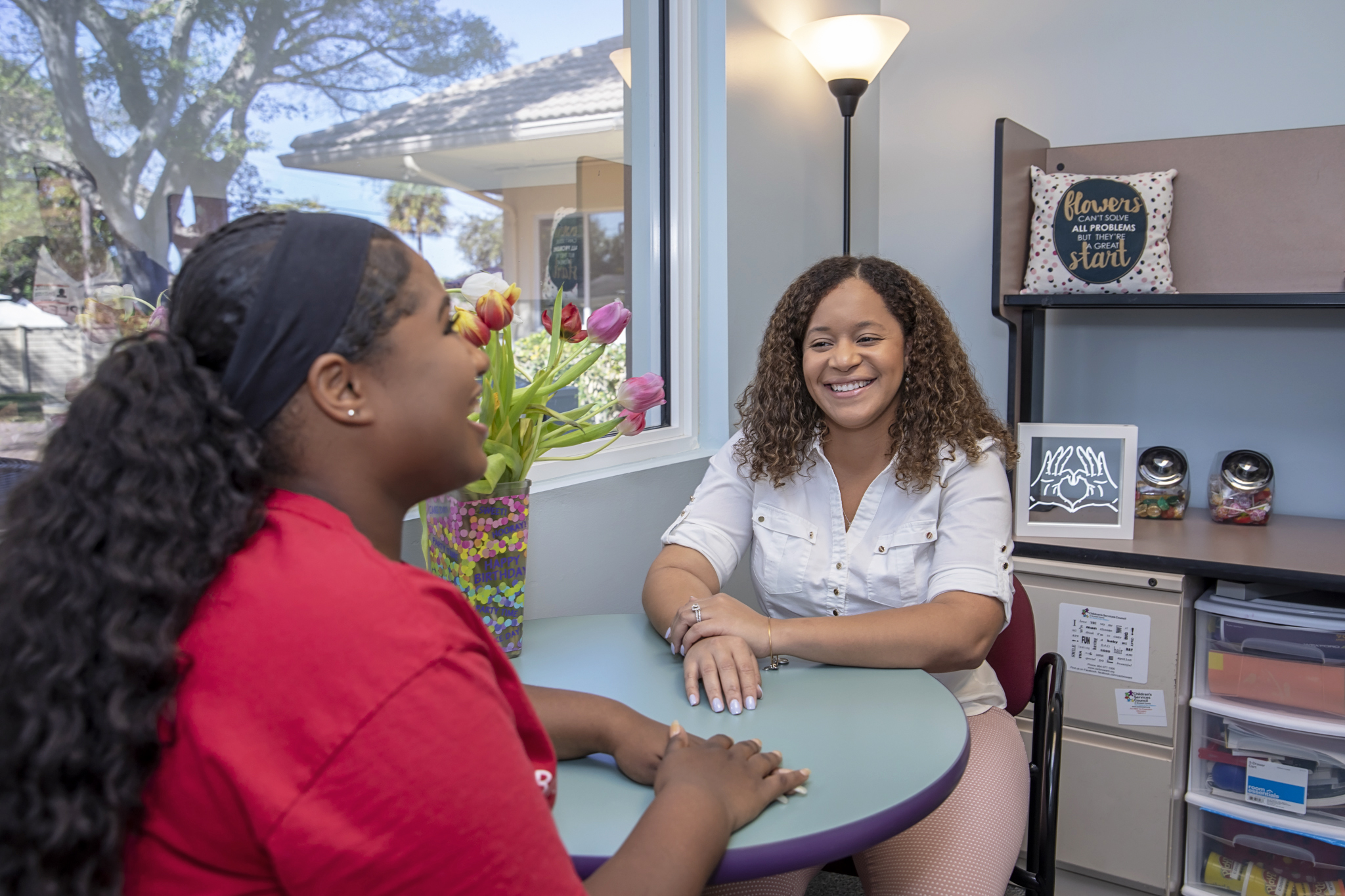By: Aggie Pappas in partnership with The Office of Juvenile Justice and Delinquency Prevention
Originally published by The Office of Juvenile Justice and Delinquency Prevention.
Gender-responsive services cultivate girls’ strengths in an effort to boost protective factors in their lives and to help prevent future involvement with the justice system.
I have devoted much of my professional career to empowering girls and young women. Girls at risk of involvement in the juvenile justice system often face issues—such as exposure to violence, trauma, and mental health problems—that require a unique response, one the juvenile justice system is not well-positioned to address.
At the Pace Center for Girls we provide year-round, middle school and high school academics along with life skills, coaching, and counseling to girls who are involved in or at risk for involvement in the juvenile justice system.
The free program, which serves about 3,000 girls annually at 22 locations across Florida and Georgia, helps girls and young women heal from trauma, build prosocial skills, and reduce unhealthy behaviors.
Pace offers a comprehensive academic curriculum and social services, doubling the likelihood that participants will graduate high school, according to a 2019 study. The curriculum emphasizes a gender-responsive, strengths-based, and trauma-informed approach to help each girl cope with her past and prepare for the future. To start this transformation, we surround each girl with unconditional love, safety, and support.
OJJDP has supported Pace with multiple grants since our first center opened in 1985. Last year, OJJDP awarded Pace a 3-year, $425,000 grant to launch the Reach Counseling in Macon, GA. The grant paved the way for us to begin serving girls in Georgia, after launching the program at some of our Florida locations in 2009.
In contrast to our day centers, the Reach program focuses on behavioral counseling. Participants can receive therapy at a Pace center, at school, home, or another community site; or they can access it online. Girls can participate in group counseling as well.
The Reach Counseling program has been shown to help girls improve relationships with friends and family, improve their grades, develop concrete plans for the future, and deal with adversity. Our data also show that compared to 71 percent of program participants who had no involvement with the juvenile justice system when they started, 95 percent had no involvement with the juvenile justice system 1 year after completing Reach. The program served 980 girls in fiscal year 2020.
In response to community needs, we’ve added three new components to the Reach program:
- New Day—A diversion and civil citation program for girls who have been arrested for minor offenses.
- Family Strengthening—A family reunification program for girls at risk of being removed from their homes.
- Healthy Girls—An independent transition program for girls leaving the foster care or juvenile justice systems.
While I’ve found it particularly gratifying to serve as a catalyst in the girls’ transformation, what stands out to me is their resilience. Pace has developed a proven model for providing girls an opportunity for a better future. I’ve seen it work time and time again.
Resources:
The OJJDP bulletin Girls in the Juvenile Justice System provides a statistical portrait of girls in the juvenile justice system, including trends in the demographics of this population, the offenses they committed, and how they move through the system.
OJJDP anticipates making seven awards under its fiscal year 2021 Reducing Risk for Girls in the Juvenile Justice System program. The program is intended to reduce risk factors and promote protective factors for girls who come into contact with the juvenile justice system, and place them on a path toward success.


